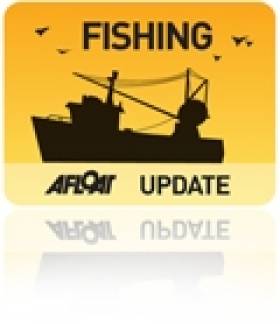Displaying items by tag: stock
Coveney Aims to Ensure fish Stocks 'Not Compromised'
The Programme for Government provides that a Sea Fisheries Sustainability Impact Assessment, based on consultations with stakeholders will be brought before the Dáil annually before EU fisheries negotiations commence. Minister Coveney said "As soon as the EU Commission brought forward its proposals for 2012 TACs and quotas, I initiated a consultation process and asked stakeholders to provide their comments on the proposals. I also arranged a meeting with representatives of stakeholders to assist and inform consideration of the proposals. I have now received the views of the fishing industry and also of environmental interests which I have carefully considered. I presented to the Dáil today a formal assessment which takes account of these views and also the expert contributions from the Marine Institute and BIM".
The Sustainability Impact Statement reviews all the stocks of importance to Ireland taking account of the scientific advice on the stocks. The statement also sets down the economic importance of stocks and the likely impacts from a socio-economic perspective. Minister Coveney said "It is very clear from the analysis undertaken by BIM that the current proposals could have significant consequences on our fishing industry and our dependant coastal communities. Potentially there is a loss of €16m for the fleet operating in the Celtic Sea, a loss of €5.3m for the fleet in the Irish Sea and €1.2m loss in the north-west. This equates to losses in the order of €60 to €65m for coastal communities where the direct cost and indirect costs (processing, net making etc) are taken into account".
Minister Coveney added "We must ensure that the state of fish stocks is not compromised and the scientific advice provided informs decisions on TACs and quotas for 2012. However, this can not mean that a simplistic approach is taken and automatic cuts are applied where full analysis of the stock in not available. We need to make use of all available data in setting next year's quotas so that decisions made are informed and appropriate".
In tandem with the Dáil debate the Marine Institute presented the Minister with 'The Stock Book' produced annually by the Marine Institute (MI). The Stock Book gives the latest scientific advice on the state of those fish stocks that are exploited by the Irish fleet and managed under the Common Fisheries Policy (CFP). Minister Coveney said "The Stock Book is an important element in determining Ireland's position on stocks in advance of negotiations on fishing opportunities at the December Council. I am a keen advocate of fully informed decision making and the information contained in the Stock book is of vital importance in forming our position at the hard negotiations in December".
























































